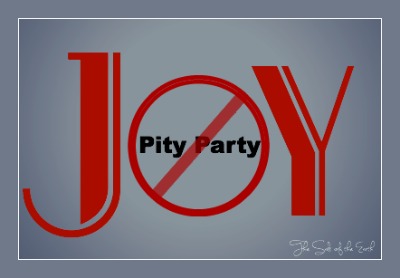Many people live with resentment and hold a grudge against others for all the wrongs and injustice that has been done to them. Their mind is filled with painful memories of the past and thoughts of them being wronged, which controls their mind and their life. They take on a victim role and share their sorrows with everyone, they meet. They are disappointed and filled with anger and sometimes even hate and are not able to forgive the other person(s). Ka lebaka la seo, they don’t live in freedom, but they live in bondage to the past. Ka bomalimabe, this phenomenon doesn’t only happen among unbelievers, but among Christians as well. Many Christians don’t know the secret of forgiveness, because if they would know the secret of forgiveness, they would forgive others instead of holding a grudge against others. What does the Bible say about forgiveness? Why is it so important to forgive others? What is the secret of forgiveness?
The bitter fruit of unforgiveness
There are many believers, who don’t live in forgiveness, but in unforgiveness, and therefore, they don’t live in freedom, but in bondage. They are not able to forgive another person or persons and let go of the past, and therefore they live as slaves of the past. They accuse and blame others for their sorrows and the injustice, that has been done to them, and they can’t or actually, they won’t, let go of it.
But isn’t it ironic, that you are overloaded with sermons of love in the church, and that many believers (mis)use the word ‘lerato’ and the message of love all the time, to justify and accept sins and iniquities, but they don’t apply the message of love to themselves and forgive others?
 They sympathize with people, who habitually live in sins, and do things, which are an abomination to God and go against Thato ea hae, but they don’t sympathize with people, who have consciously or unconsciously made a mistake and have done them wrong.
They sympathize with people, who habitually live in sins, and do things, which are an abomination to God and go against Thato ea hae, but they don’t sympathize with people, who have consciously or unconsciously made a mistake and have done them wrong.
The injustice, which is done to God, by habitually living in sin isn’t wrong and isn’t bad, and shouldn’t be punished, but the injustice, which is done to people, is wrong and bad and should be punished.
This behavior proves again, that in the modern gospel man has become the center, instead of God.
This behavior shows, that the person, who claims to be a Christian, is not born again, but still belongs to the old carnal generation of fallen man, and still sits on the throne of his/her own life and is dominated by the flesh. The flesh hasn’t died yet but is still alive. The person doesn’t belong to the new generation of the born again spiritual man, in whose life Jesus sits on the throne, and who walks after the Spirit. Because by this behavior, which originates from a reprobate mind, the person pays tribute to the sins and iniquities, in which sinners habitually keep persevering.
A person can say, hore (s)he believes and that (s)he is a child of God, but the works of the justification and acceptance of sins, and living in unforgiveness shows something else.
Jesu o rialo, that you shall know the tree by the fruits. This fruit of unforgiveness is not a fruit of the Spirit but of the flesh. If a person keeps walking in unforgiveness, it shows that the person walks after the flesh and is led by his/her feelings and emotions.
Unforgiveness is like drinking poison yourself
Many Christians think that they hurt and victimize others by living in unforgiveness, empa bonneteng, they hurt and victimize themselves. They are the victims of this bitter fruit, which they bear.
There is a saying, that says ‘unforgiveness is like drinking poison yourself, waiting for the other to die.’ And that is so true! Because by living in unforgiveness, you don’t victimize anybody, but yourself. Hobane, while you live with all this anger, feelings of hate, and a bitter and resentful heart, the other person continues his or her life and does not suffer a bit.
The commandments of Jesus are hard for the old man
Jesus didn’t walk after the flesh, empa kamora Moya, and had the best intentions for the people of God. That’s why, He taught them Litaelo tsa hae, which were the same commandments as the Father’s commandments. Actually, Jesus made some commandments even harder, because Jesus knew the capability of the new man. He knew that the new man was able to fulfill the law, just like He did (Bala hape: ‘Is man able to fulfill the law?’).
The commandments of God and Jesus were hard for the old carnal man, who is unspiritual and walks after the flesh and therefore, is being led by his senses, carnal mind, feelings and emotions, and the poor worldly spirits. Empa bakeng sa monna e mocha, who is spiritual and ba dutse ho Jesu Kreste; the Word and walks after the spirit in the power of the Holy Spirit, these commandments are not hard (Bala hape: ‘The battle and weakness of the old man’).
Forgive us our debts, as we forgive our debtors
Give us this day our daily bread. And forgive us our debts, as we forgive our debtors (Mattheu 6:12)
When the disciples, who by the way were not tsoaloa hape, asked Jesus to teach them how to pray, Jesus also mentioned the aspect of forgiveness.
When you pray the Lord’s prayer, you promise that you will forgive your debtors, who are those that have treated you wrong, have hurt you, or have done something against your will or expectation. Now it’s all about, whether you keep your promise to God and execute your promise to Him, by forgiving others or not.
You can say and promise whatever you want, but it’s all about if you keep your sayings and your promises. For every word you speak, you shall give account on the day of judgment (Mat 12:36). Ka hona, be careful with the promises you make, but don’t keep. Because if you don’t do what you promise to do, you are a liar, and the final destination of liars is not so good (Tšenolo 21:8).
When you forgive others, your heavenly Father will forgive you
For if you forgive men their trespasses, your heavenly Father will also forgive you: But if you forgive not men their trespasses, neither will your Father forgive your trespasses (Mattheu 6:14)
This is a hard saying! Because Jesus says, that if you don’t forgive others their trespasses (towards you), your heavenly Father will not forgive your trespasses (towards Him). Hona ho bolela, that if you don’t forgive others, Your heavenly Father will hold you accountable for all the sins you have done towards Him, and because of that, your final destination could be different from what you expect.
 When Peter asked Jesus how many times he should forgive a person, who sinned against him and if that should be seven times, Jesus answered him: “seventy times seven”.
When Peter asked Jesus how many times he should forgive a person, who sinned against him and if that should be seven times, Jesus answered him: “seventy times seven”.
Jesus discussed the matter of forgiveness in a parable and said:
Therefore the kingdom of heaven is likened unto a certain king, which would take account of his servants. And when he had begun to reckon, one was brought unto him, which owed him ten thousand talents. But forasmuch as he had not to pay, his lord commanded him to be sold, and his wife, and children, and all that he had, and payment to be made.
The servant, therefore, fell down, and worshipped him, ho bua, “Lord, have patience with me, and I will pay thee all”. Then the lord of that servant was moved with compassion, and loosed him, and forgave him the debt.
But the same servant went out, and found one of his fellow-servants, which owed him a hundred pence: and he laid hands on him, and took him by the throat, ho bua, “Pay me that you owe”. And his fellow-servant fell down at his feet, and besought him, ho bua, “Have patience with me, and I will pay thee all”. And he would not: but went and cast him into prison, till he should pay the debt.
So when his fellow-servants saw what was done, they were very sorry, and came and told unto their lord all that was done. Then his lord, after that he had called him, said unto him, “O thou wicked servant, I forgave you all that debt, because you desired me: Shouldest not you also have had compassion on your fellow servant, even as I had pity on you?” And his lord was wroth, and delivered him to the tormentors, till he should pay all that was due unto him. So likewise shall my heavenly Father do also unto you, if you from your hearts forgive not every one his brother their trespasses (Mattheu 18:23-35)
God should forgive and forget, but you don’t?
And when you stand praying, forgive, if you have ought against any: that your Father also which is in heaven may forgive you your trespasses. But if you do not forgive, neither will your Father which is in heaven forgive your trespasses (Tšoaea 11:25-26)
God should forgive, but you shouldn’t forgive? That’s not right! The Bible doesn’t say anything about privileged positions and that man stands above God. God is the Almighty and supreme God, and if God forgives, then those, who are born of Him and belong to Him and latela Jesu, should forgive as well.
If you have become a new creation and you have received God’s nature by the Holy Spirit living inside of you, then you shall forgive, just like Him.
If a person asks for forgiveness, you shall forgive. Hona ho bolela, that you shall no longer live in the past and hold a person accountable. You shall not open the box of the past, during a conversation, and mention all the mistakes of the person and what the person has done to you. Because forgiveness means that you will forget it.
Forgiveness doesn’t mean, “I will forgive, but I will never forget it.” Because if you will never forget it, then, in reality, you haven’t forgiven the person. You can say that you forgive, but if the matter still lives inside of your heart and mind, you haven’t forgiven the person.
What is the secret of forgiveness?
Ho na le Bakreste ba bangata, who are daily pulling a heavy box on a rope along with them. This is not according to the will of God. That’s why Jesus commanded His followers to forgive others, so that you will not only receive the forgiveness of your heavenly Father but if you forgive others, and here comes the big secret of forgiveness: if you forgive others, you will be delivered from the past and you will be able to let go of the past (Bala hape: ‘Na u lekhoba la nako e fetileng?’).
If you let go of the past, you shall live in freedom. You shall no longer be disappointed, angry, and pressed down, but you shall be joyful, happy, and hopeful and experience the peace of God in your life.
Forgive and you shall be forgiven
You can pray all you want for the deliverance of the past, but God shall not answer your prayer. Hobaneng ho se joalo? Because God has given you the power and the answer for the deliverance of the past, by forgiving others.
God has given you His Word, in which His will is written. Hae Word is a manual for His sons and daughters on this earth. If you take the words of God and apply them to your life, and therefore become a doer of the Word, then the result of every spiritual word, shall become visible in your life (Bala hape: ‘The hearers vs the doers‘).
God has given you His Word and His Power, and it’s up to you, if you believe in Them and trust in Him, by doing, what He has commanded you to do.
Forgiveness is translated from the Greek word ‘apoluō'. It means: to free fully, ke hore, (literally) relieve, release, dismiss (reflexively depart), kapa (figuratively) let die, pardon, kapa (specifically) tlhalo (Strong’s Concordance).
When you forgive, which means that when you let go, you shall be released and let go of (Luka 6:37). But it’s up to you, if you listen to your flesh and keep holding on the rope and keep pulling the heavy box along with you, or that you listen to the Word and the Spirit and obey Them, by letting go of the rope.
‘E be letsoai la lefatše’


